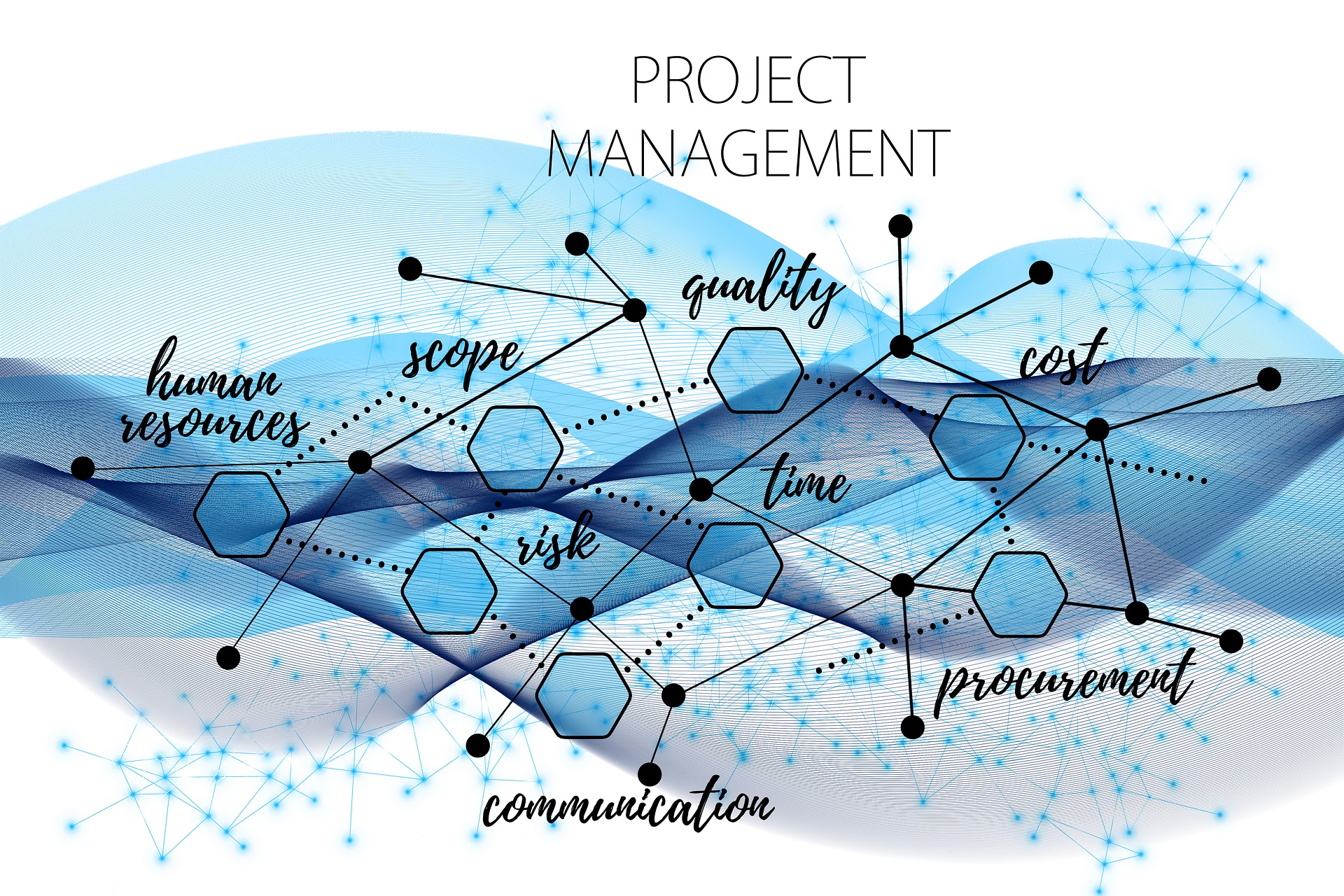Many people perceive project managers as some kind of superheroes who are trained for any situation, always have a clear strategic vision, and an uncanny attention to detail. Project managers, in the public eye, are focused on creating plans, listing tasks, controlling budgets, and motivating people.
While this is all true to some extent, being a project manager is more about putting out fires. In today’s article, we will share seven tips on how project managers can put out those fires more efficiently and effectively.

# 1 Matching terminology
Before a project launches, it's critical to define the methodology that will be used to manage the project and create a glossary of key terms and concepts team members will need to know.
At first glance, such a step might not seem necessary, but agreeing on a methodology is essential to a project's success. Projects in marketing, IT, or construction often use different frameworks. DevOps solutions company is likely to use a Scrum framework, whereas more conservative organizations, such as the government, will traditionally prefer Waterfall. Each project management framework has its own unique lingo, which can create confusion for team members if they aren't familiar with the particles of the framework's approach.
And because projects typically operate under tight time constraints, the last thing you need is to have some of your key players googling terms they don't know, or worse, making mistakes because they don't understand what's being asked of them.
# 2 Agreement of conditions
Another thing that every project manager should focus on before the project launch, is creating a procedure for some of the scenarios they will likely encounter in the project's lifecycle.
It takes time, energy, and a few brainstorming sessions, but planning for how to deal with situations as they arise pays off big in the end. Once the active project starts, there should be no downtime due to back-and-forth negotiations.
What should be top-of-mind for the well-prepared project manager?
The internal product creation process
For a project to be successful, team members need to know the main steps of the project, their roles, including who is responsible for each task, how those tasks are assigned and picked up, and how their work will be evaluated. A good project manager communicates all of this to the team at the outset.
It is also helpful to create a list of contacts for the team to know who they should message for each kind of request.
Product assessment criteria
At some point during the project discussion with the shareholders and business users, the project manager finds out the requirements for the service or product they are delivering.
At that moment, it is important to be specific and not allow for any ambiguity as to how the project will be evaluated by shareholders.
Here are the basic steps you can take to end up with clear evaluation criteria:
1. Create a list of potential evaluation criteria prior to the meeting and ask your team for input. Also, make sure the criteria can be measured objectively.
2. Present the list to the shareholders, ask their opinion on the existing list and what should be added from their side.
3. Review the updated list and share it with the team to verify as well.
4. Get an official confirmation from the shareholders that those criteria will be used at the end (and in the middle, if applicable) of the project.
5. Attach the list to the project documentation and send out the latest copy to all stakeholders.
Risk management strategy
In a perfect world, all risks would be identified and mitigated prior to the project’s start. However, life isn’t perfect and unexpected events can occur. Therefore, you should have a universal action plan in place to deal with any risks that were missed during planning or simply didn’t exist at the time.
Change management strategy
Earlier we used an example about DevOps leveraging Scrum as their project framework. In Scrum, change isn't a problem — it's viewed as a positive thing. Waterfall, on the other hand, treats changes as risks and tries to avoid them at all costs.
So, depending on the project management framework you work with, your response to change will be different. However, there must be a response plan in place.
Good or bad, change represents a risk to the project, its budget, and its deadlines. Thia that when change occurs, the project team must have a clear plan on how to approach it. Also remember to confirm the plan with shareholders and, ideally, have a record of their formal agreement, because they might feel differently in the moment, representing yet another risk to the project.
# 3 Communication with the team
The sooner the project manager builds direct and honest communication with the team, the better.
Why is it necessary?
1. In stressful environments (which are basically all projects that have ever existed), people tend to fight, get upset with each other, gossip, or engage in politics. Needless to say, that’s not good for the project.
2. Often project managers get a team that is spread out either geographically or across departments. It means that a lot of the time they don’t see each other and can’t have a face-to-face chat to break the ice or quickly fix issues when they come up. And even though the last two years have proven that people can work just as effectively remotely, having your team members on the same page and communicating effectively will do wonders for the project.

# 4 Set competent goals and objectives
You can’t reach your goals if you don’t understand them.
As much as 50% of the success of the project is determined by how much the participants understand the goals, expected results, and what tasks must be completed to achieve them.
Every project management methodology teaches the same thing: planning is the foundation. There are many goal-setting strategies to choose from, but perhaps the most commonly used one is SMART goals.
SMART stands for:
S - specific
M - measurable
A - attainable
R - relevant
T - time-bound
You might not choose to work with the SMART goal model, but we recommend making your objectives time-limited and measurable in any case. Otherwise, you will have a hard time evaluating how well you’re doing, and your project team can become confused.
# 5 Risk assessment
We’ve already touched a little on risk management in tip #2.
However, it is worth putting it in a separate recommendation because an unbelievable number of projects fail or deliver poor results because they haven’t assessed their risks properly.
Theoretically, we all understand there are many risks and we must assess and account for them to prevent catastrophes. At the same time, we don’t really want to think about negative things and often prefer sweeping them under the rug.
Risk management is like getting insurance or doing a health check. While we know these are important, we often dread doing them. And the common argument here is “if it happens, then we will fix it.” Unfortunately, this isn’t good planning, and some risks spiral out of control in an instant, leading to more issues down the line.
Doing a risk assessment exercise and creating a plan B will not guarantee success, but they will remove the majority of potential threats and substantially increase your chances of delivering a high-quality product and satisfying the shareholders.
# 6 Be ready for change
At this point, you have a plan to deal with change and might think that’s all you need to do.
Having a plan is good and it will help mitigate project hiccups, but your team must also be mentally prepared to handle the curveballs, stakeholders or even the project itself throws your way. That’s why we recommend hosting at least one meeting dedicated to change, where you can cover your vision on the topic, why change isn't that scary, and how your change management process can help you deliver optimal results.
For example, a common scenario in DevOps project management is having a change request motivated by what a competitor is doing. Let’s say you have a certain feature for your software in the pipeline scheduled to be released next year. But today you find out that your competitor will be launching similar functionality in two months. What happens in those cases usually is that the project plan will be interrupted by shareholders wanting to expedite the timeline for getting to the market. The rest of the work gets pushed back, and the team becomes frustrated. With some change management training and the right team mindset, team members will not be discouraged or angry, and you will not be missing out on productivity when change inevitably arises.
#7 Show appreciation for the team and the work they do
A little bit of appreciation goes a long way.
Every human being likes to feel valued and seen. So, as a leader, a project manager must not forget about gratitude. A good practice would be to regularly recognize the team's good work and congratulate individuals for achieving important milestones. You're not only motivating the individual who excelled, the rest of the team will be motivated too. Much like a rising tide, gratitude lifts all boats.
Also, please remember that you are never winning by taking credit for someone else’s good ideas and suggestions. The truth has a way of coming out, especially when credit is on the line, and your reputation will suffer, and even worse demotivate the rest of the team.
We hope this article has helped you and you were able to gain a few new insights into project management. Please stay tuned for more articles on project management, software development, leadership, and more.
We hope this article has helped you and you were able to gain a few new insights into project management. Please stay tuned for more content on project management, software development, and leadership.
Emphasoft is a leading custom development provider that creates top-notch solutions for clients from all over the world. Our team of professional developers can take on any task and build exceptional products for you. If you are looking for an outsourced project team that focuses on the customer needs, has a passion for technology, works fast, and has profound expertise, then look no further.
Reach out to us today to learn more about how we can help bring your vision to life.









 Schedule a Discovery Call
Schedule a Discovery Call Schedule Call
Schedule Call